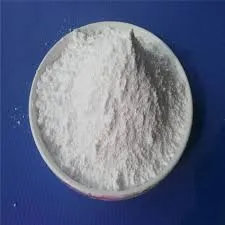Mitochondrial Basics with PQQ
Mitochondria, often dubbed the powerhouses of the cell, play a crucial role in cellular energy production and overall metabolic processes. Understanding mitochondrial function is essential not only for biology and medicine but also for nutritional sciences that seek to enhance cellular health. One intriguing compound associated with mitochondrial function is pyrroloquinoline quinone (PQQ), a redox cofactor that has garnered attention for its potential benefits in promoting mitochondrial health.
The Role of Mitochondria in Cellular Metabolism
Mitochondria are double-membraned organelles found in nearly all eukaryotic cells. Their primary function is to convert the energy stored in nutrients into adenosine triphosphate (ATP), the energy currency of the cell, through a process known as oxidative phosphorylation. This process occurs in the inner mitochondrial membrane, where the electron transport chain facilitates ATP production. Mitochondria also play critical roles in other cellular processes, including
1. Regulating Metabolism Mitochondria are involved in the oxidation of fatty acids and amino acids, contributing to energy production and metabolic balance. 2. Calcium Homeostasis They help regulate intracellular calcium levels, which is vital for muscle contraction, neurotransmitter release, and various metabolic pathways.
3. Apoptosis Mitochondria can release pro-apoptotic factors, thus playing a key role in programmed cell death, which is essential for maintaining cellular health and development.
4. Reactive Oxygen Species (ROS) Production While mitochondria are the main site of ATP generation, they are also responsible for producing ROS as byproducts. These molecules can serve as signaling molecules but may also lead to oxidative stress if produced in excess.
Introduction to Pyrroloquinoline Quinone (PQQ)
PQQ is a small quinone molecule that has recently been recognized for its potential physiological benefits. It is a redox cofactor for various enzymes involved in the metabolism of carbohydrates and amino acids. Notably, PQQ has been linked to mitochondrial biogenesis, which is the process by which new mitochondria are formed within cells. This is particularly relevant for enhancing the overall capacity of the energy system in tissues such as muscle and brain.
mitochondrial basics with pqq

Research has shown that PQQ may help stimulate mitochondrial biogenesis by activating key signaling pathways, such as the sirtuin and AMPK pathways, which are known to promote cellular energy metabolism and longevity. Furthermore, PQQ has antioxidant properties, helping to neutralize ROS and reduce oxidative stress, which can be detrimental to mitochondrial function and overall cell health.
The Potential Benefits of PQQ on Mitochondrial Health
1. Enhanced Energy Production By supporting the formation and function of mitochondria, PQQ may improve energy levels and physical performance. Individuals with chronic fatigue or metabolic disorders could benefit from PQQ supplementation.
2. Neuroprotection PQQ may also offer neuroprotective effects. Emerging studies suggest that it can improve cognitive function and help protect against neurodegenerative diseases like Alzheimer’s and Parkinson’s by preserving mitochondrial function and reducing oxidative damage in neurons.
3. Cardiovascular Health Improving mitochondrial function is also essential for heart health. Research suggests that PQQ may enhance cardiac function and protect against ischemic injury by optimizing energy metabolism in heart cells.
Incorporating PQQ into Your Diet
Although our bodies can synthesize PQQ, dietary sources such as fermented foods, green tea, and certain vegetables (e.g., spinach and green peppers) can increase intake. PQQ is also available as a dietary supplement, providing an accessible option for those looking to enhance mitochondrial health.
Conclusion
Understanding the basics of mitochondrial function is essential for grasping the complexities of cellular metabolism and energy production. PQQ emerges as a promising nutrient that may help support mitochondrial health, promote energy levels, and offer protective effects against various health issues. As we continue to explore the interplay between diet, mitochondrial function, and overall health, PQQ could play an increasingly significant role in nutritional strategies aimed at enhancing well-being.

